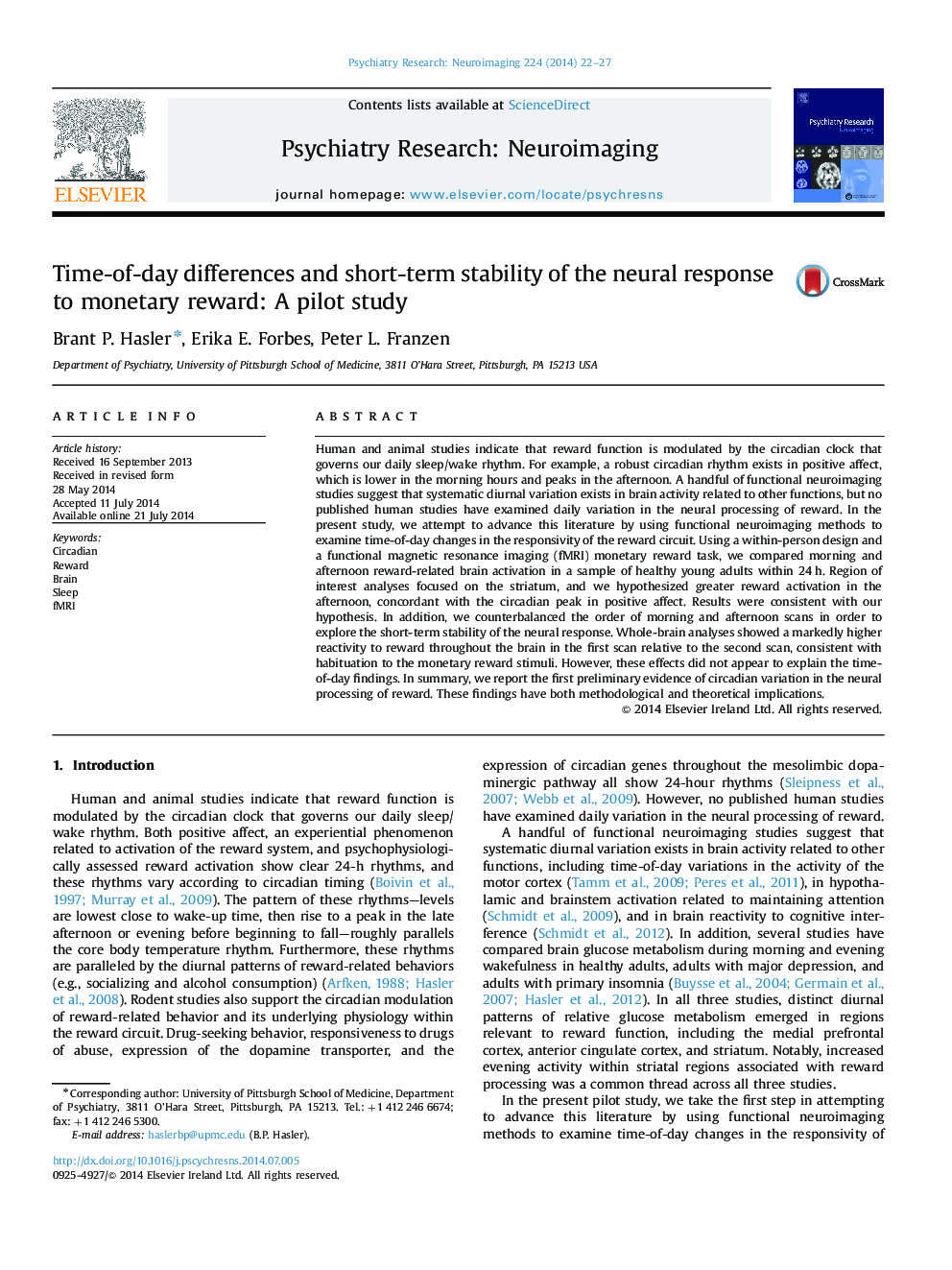| کد مقاله | کد نشریه | سال انتشار | مقاله انگلیسی | نسخه تمام متن |
|---|---|---|---|---|
| 335302 | 546916 | 2014 | 6 صفحه PDF | دانلود رایگان |
• Reward function, including positive affect, is modulated by the circadian clock.
• No neuroimaging studies have examined time-of-day changes in reward function.
• Using fMRI, we compared AM–PM changes in striatal response to monetary reward.
• As predicted, striatal response to reward was higher in the afternoon.
• In addition, whole brain findings suggest habituation from first to second scan.
Human and animal studies indicate that reward function is modulated by the circadian clock that governs our daily sleep/wake rhythm. For example, a robust circadian rhythm exists in positive affect, which is lower in the morning hours and peaks in the afternoon. A handful of functional neuroimaging studies suggest that systematic diurnal variation exists in brain activity related to other functions, but no published human studies have examined daily variation in the neural processing of reward. In the present study, we attempt to advance this literature by using functional neuroimaging methods to examine time-of-day changes in the responsivity of the reward circuit. Using a within-person design and a functional magnetic resonance imaging (fMRI) monetary reward task, we compared morning and afternoon reward-related brain activation in a sample of healthy young adults within 24 h. Region of interest analyses focused on the striatum, and we hypothesized greater reward activation in the afternoon, concordant with the circadian peak in positive affect. Results were consistent with our hypothesis. In addition, we counterbalanced the order of morning and afternoon scans in order to explore the short-term stability of the neural response. Whole-brain analyses showed a markedly higher reactivity to reward throughout the brain in the first scan relative to the second scan, consistent with habituation to the monetary reward stimuli. However, these effects did not appear to explain the time-of-day findings. In summary, we report the first preliminary evidence of circadian variation in the neural processing of reward. These findings have both methodological and theoretical implications.
Journal: Psychiatry Research: Neuroimaging - Volume 224, Issue 1, 30 October 2014, Pages 22–27
